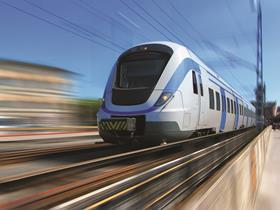Influential public accounts committee slams HS2 business case and questions if project is the best way to spend £50m on rail investment

The high-speed rail line from London to the north of England has come under fire again over its costs and business case.
In a report on HS2, the public accounts committee found that the Department for Transport had “yet to present a convincing strategic case” for the project and had not yet demonstrated that HS2 was the best way to spend £50m on rail investment.
The report is the latest in a series of blows to the project, since the government revised the cost from £33bn to £43bn earlier this year, with a further £7.5bn for the cost of the rolling stock.
Margaret Hodge, chair of the public accounts committee said the business case for the [project relied upon outdated assumptions, such as the idea that people “cannot and do not work on trains using modern technology”.
She said: “[DfT] has not yet demonstrated that this is the best way to spend £50 billion on rail investment in these constrained times, and that the improved connectivity will promote growth in the regions rather than sucking even more activity into London.
“The pattern so far has been for costs to spiral - from more than £16 billion to £21 billion plus for phase one - and the estimated benefits to dwindle.
“The Department has been making huge spending decisions on the basis of fragile numbers, out-of-data data and assumptions which do not reflect real life, such as assuming business travellers do not work on trains using modern technology.”
The committee called for the government to published a revised business case for the project, based on up-to-date information and realistic assumptions, particularly on the benefits to business travellers.
Speaking on the BBC’s Radio 4 Today programme this morning, transport secretary Patrick McLoughlin said HS2 was essential for the long-term future and the government was set to publish an updated business case for the project.
He said: “I think the simple fact is we have not built a new railway line north of London for 120 years, [and] there has been massive growth on our railways in the last 15 years.
“This is planning for the long-term future of our railways, this railway will be up and running in 2026, it is essential that we have good connections between our main cities.
“We’re working on the figures - the committee have asked us to do more work on that - we will be doing more work, we will be publishing more work on that.”
The report comes after the bosses of some of the UK’s biggest construction firms pledged, in a letter to the Telegraph, that the construction industry would build HS2 on time and below budget.
In the letter to the Telegraph, the heads of Laing O’Rourke, Arup, Atkins, Skanska, Balfour Beatty, Mott Macdonald and Kier all pledged to deliver the first phase of project on time and below the £17.16bn budget.



























No comments yet